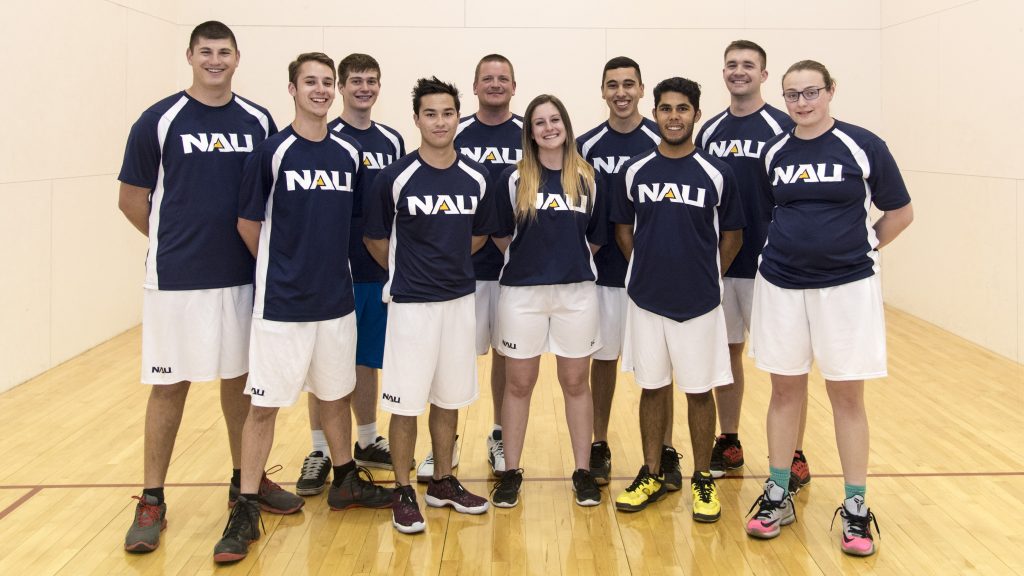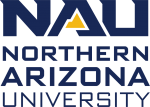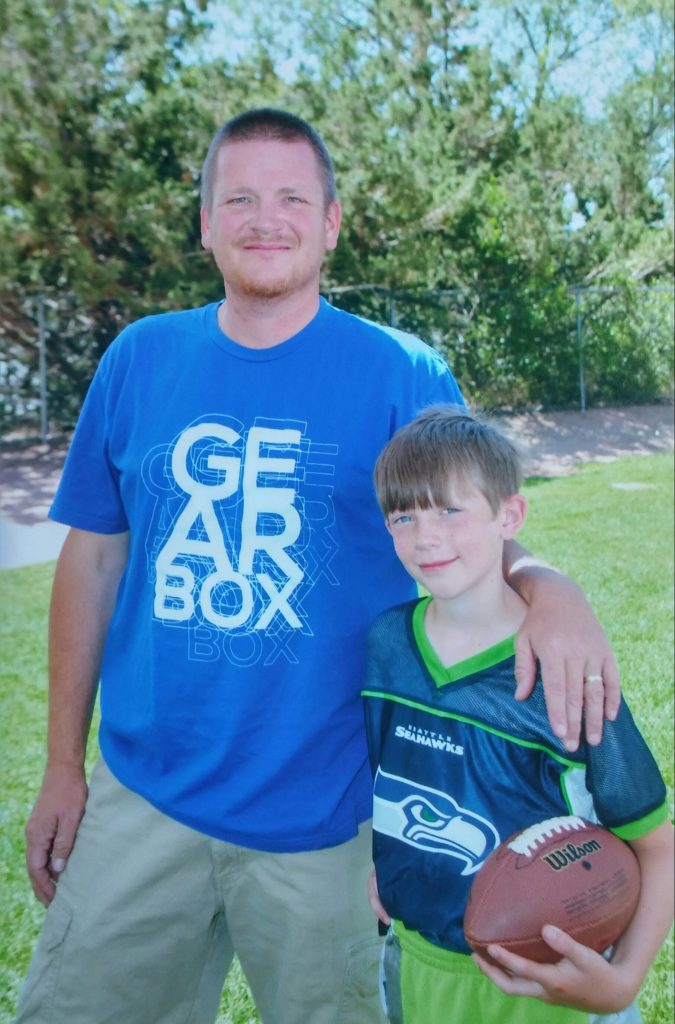May 2, 2019
After decades working as an employee of Northern Arizona University, Kevin Hayes decided to take on a new responsibility: in addition to his full-time job as a Salesforce developer team lead with Information Technology Services, he started taking classes, fulfilling a goal decades in the making.
The college track was not an obvious choice for Hayes. Born into the world of computers and software development (his father was in the field), he spent his life coding, tracking his small business appointments through advanced databases and building computers to suit his needs. When he moved to Flagstaff as a young adult in 1998, Hayes was hired in the bursar’s office at NAU and has been with the university since then, working in a variety of capacities behind the scenes to help software systems run smoothly and students be successful.
One of his earliest projects was building the first system to track and report on the Taxpayer Relief Act of 1997 for student tax credits. Some of his other projects include building ITS Cobol systems, working on the PeopleSoft project and managing the team that created the Personalized Learning (PL) program. That program, part of NAU’s competency-based online learning curriculum, led Hayes to a major life decision.
“I have always been proud to be an NAU employee but never thought I could get my degree,” Hayes said. “I took occasional classes at community college but was never really able to make significant progress toward anything. When we started building Personalized Learning, a subscription-based learning model where you can learn as fast or as slow as you need, I realized this was a degree program I could get behind and take advantage of.”
NAU was a leader for the self-paced Personalized Learning model in Arizona and was the first public university to offer a competency-based online degree path, which attracted national attention. The course crosswalk system that Hayes worked on is a key element to PL’s operation.
The system helps translate individual competencies within courses into lessons that can be taken in any order. Once all the lessons in a course have been completed, students receive credit for a course and it appears in PeopleSoft and on transcripts as an easily transferrable and recognized course. For example, the Math 115 course on quantitative and analytical calculation is broken into five lessons: algebra, basic data and statistics, business financial principles, personal finance and operations research. Students have control over how they would like to structure those lessons, creating a personalized learning schedule.
The option of earning a degree in a self-structured, self-paced format benefits many nontraditional students who wouldn’t be able to commit to an education without this advanced flexibility—students just like Hayes.
“I thought to myself that I would look back at my life at 70 and seriously regret not at least attempting to get a degree in a program that I helped build.”
Not surprisingly, Hayes credits his success, in part, to his ability to move through coursework at his own pace. With all his professional experience, the higher-level lessons were often easiest for Hayes to get through, while the 100 level courses, on subjects outside his expertise, were the toughest. Rather than stopping entirely, Hayes would switch from a lesson he was struggling with to one he knew he could finish, allowing him to keep making progress toward his degree until he could focus on the lessons that demanded more attention.
“The real benefit of the Personalized Learning experience is the ability to simply stop what you are working on when life gets in the way and take on a lot of coursework in short timeframes when life opens up,” he said. “Without that ability, I really don’t think I would have been able to make the time to finish those foundation courses and learn so much about those interesting subject areas.”

The program offered so much flexibility, in fact, that Hayes was able to take advantage of extracurricular activities he says are an important part to a well-rounded college experience. An avid racquetball player, Hayes frequently played with other staff and faculty on campus during lunch breaks. In his first year as a student, he restarted the Racquetball Club to share the joy of the game with his new peers. Hayes acted as president, vice president, board member, treasurer and mentor to the students, building a solid foundation for the club to keep growing after his departure. He said the support that comes from being part of a group is crucial to advancing in the game and in the pursuit of a college degree.
Hayes also found time to try his hand at creative writing. Recently, he entered a short piece in the Samuel Larue Finley Humorous Writing Contest hosted by the School of Communication. His entry “Mom, I’m Sorry About Your Belly,” an amusing retelling of his wife and young son getting to the bottom of where babies come from, won the grand prize of $500.
After graduation, Hayes will remain an involved member of the Lumberjack community. He hopes to continue his career at the university and keep providing support and guidance to the Racquetball Club. Although it’s coming to a close, Hayes’ time as a university student was well spent; he will have a bachelor of science in computer information technology and enduring memories of his experience.
“Never in my life did I think I could become a college graduate,” Hayes said. “I am a 49-year-old married business professional with a full-time job, two kids and a passion for the game of racquetball. I never would have imagined there could have been such a flexible degree program that would align so perfectly to my needs, wants and goals. NAU’s Personalized Learning degree program did just that.
“I am extremely proud to have been a member of the Racquetball Club, a PL student and now, an NAU graduate.”

Cheyenne Jarrette | NAU Communications



